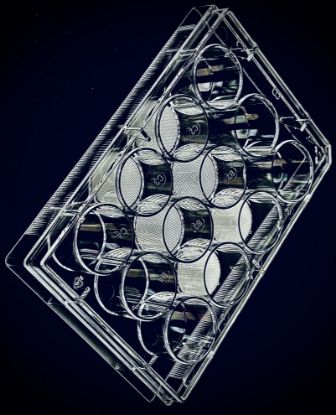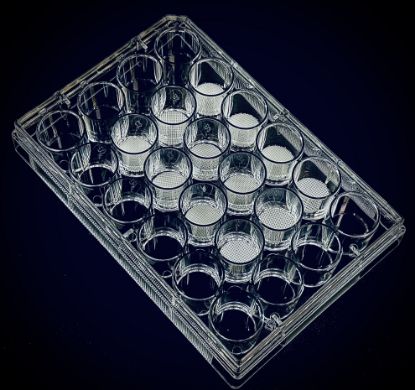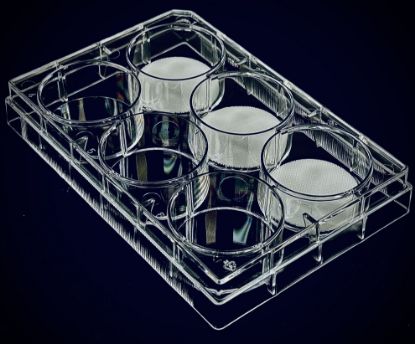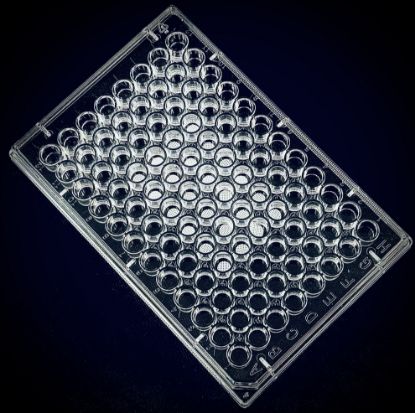3D Insert-PCL
Polycaprolactone (PCL) is a biodegradable polymer used in many FDA approved implants, drug delivery devices, sutures, as well as for a wide variety of applications in tissue engineering research. These applications include: Bone/Cartilage, Cardiovascular, Nerve, Skin, Tendon/Ligament, Liver.
Pre-Sterilized and Ready to Use
Our 3D InsertTM-PCL scaffolds are prepackaged into wells of tissue culture plates and terminally sterilized using γ-radiation. Currently our PCL Scaffolds are available in prepackaged tissue culture plates ranging from 6-well to 96-well plates.
100% Connectivity
The pores of the products are 100% open, making it easy for cells to be seeded throughout the porous scaffolds and the nutrient and cell metabolic waste to be exchanged. This feature makes the products especially useful in conducting dynamic cultures where the medium can perfuse through the 100% open porous structure.
Well Defined Pore Size and Porous Structure
3D Biotek’s precision microfabrication technology produces a well-defined pore size and ensures the reproducibility of the porous structure from batch to batch.
Improved Cell Culture Efficiency
3D Biotek's products have increased surface areas as compared to 2D cell culture plates. There, more cells can be cultured using the same size cell culture dish/plates/flasks/bioreactors.
Easy Separation of Cytokines and Growth Factors Secreted by Cultured Cells
Our 3D cell culture scaffolds will not absorb cytokines and growth factors. Therefore, cytokines and growth factors, which are secreted by cultured cells during 3D culture, can be easily separated or recovered from the culture medium without going through any extra separation steps.
Organic Solvent Free
Cytotoxic organic solvents, such as chloroform and methylene chloride, are often used in fabricating PCL scaffolds. 3D Biotek’s precision micro-fabrication technology is a solvent-free manufacturing process. Therefore, the 3D InsertTM- PCL is free of organic solvent.
Fit Into Various Bioreactors
The size and configurations of 3D InsertTM - PCL can be customized to fit into the bioreactors of your choice.





